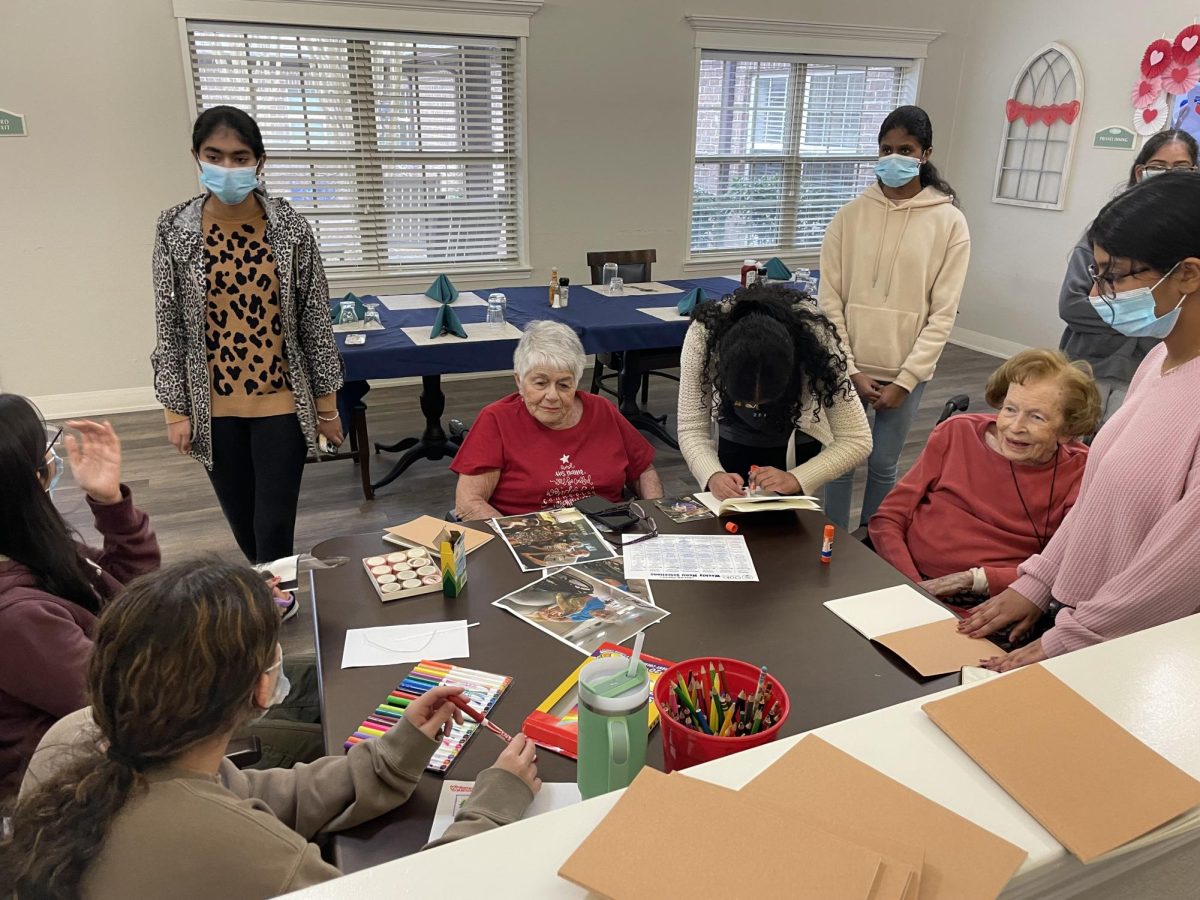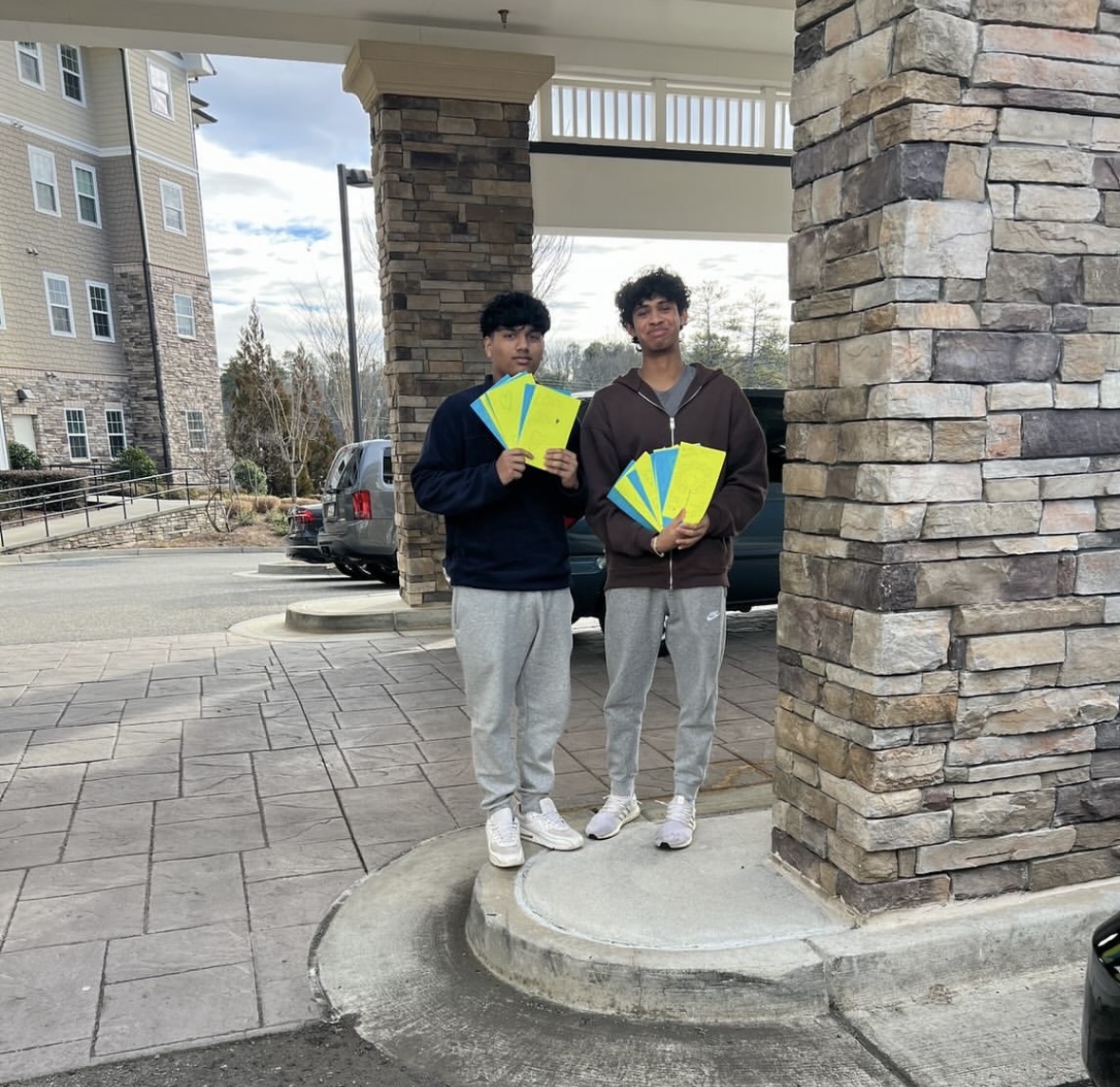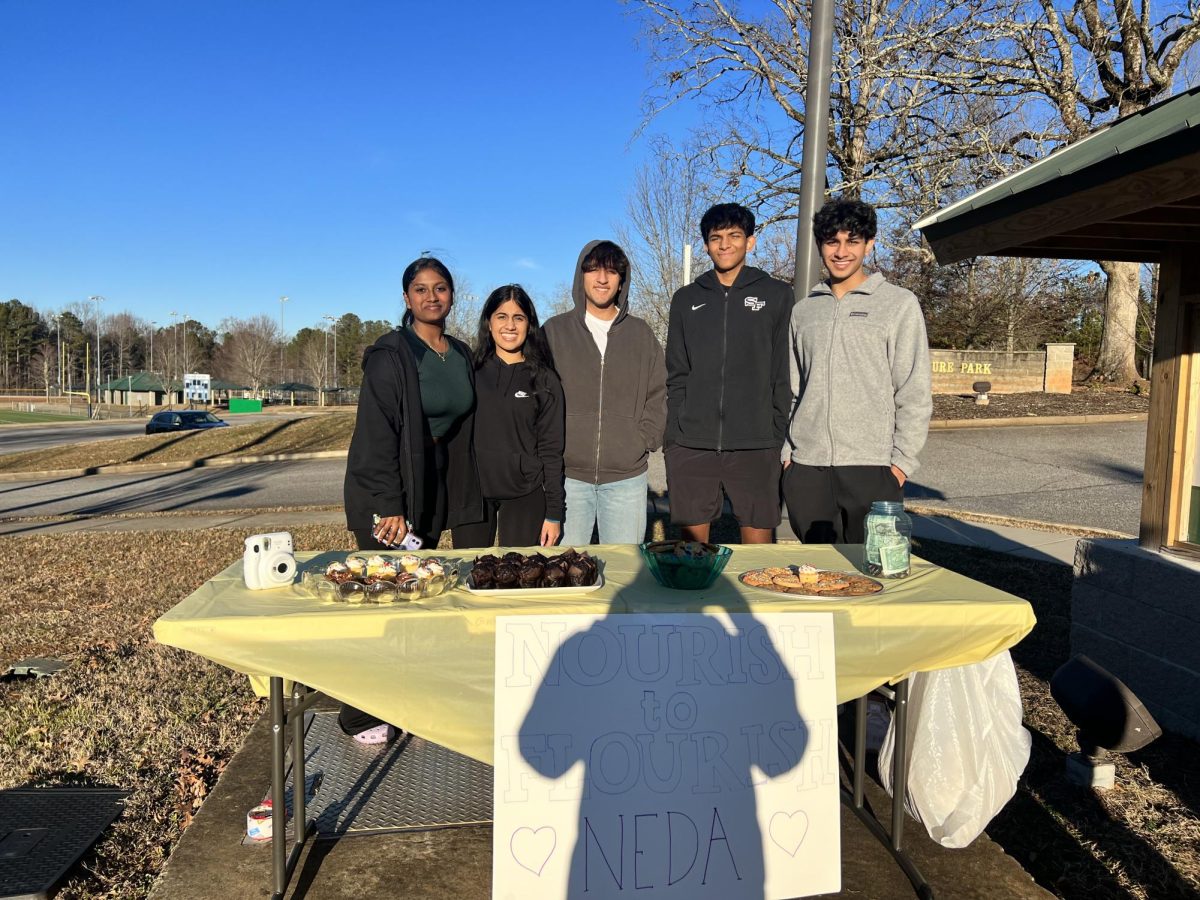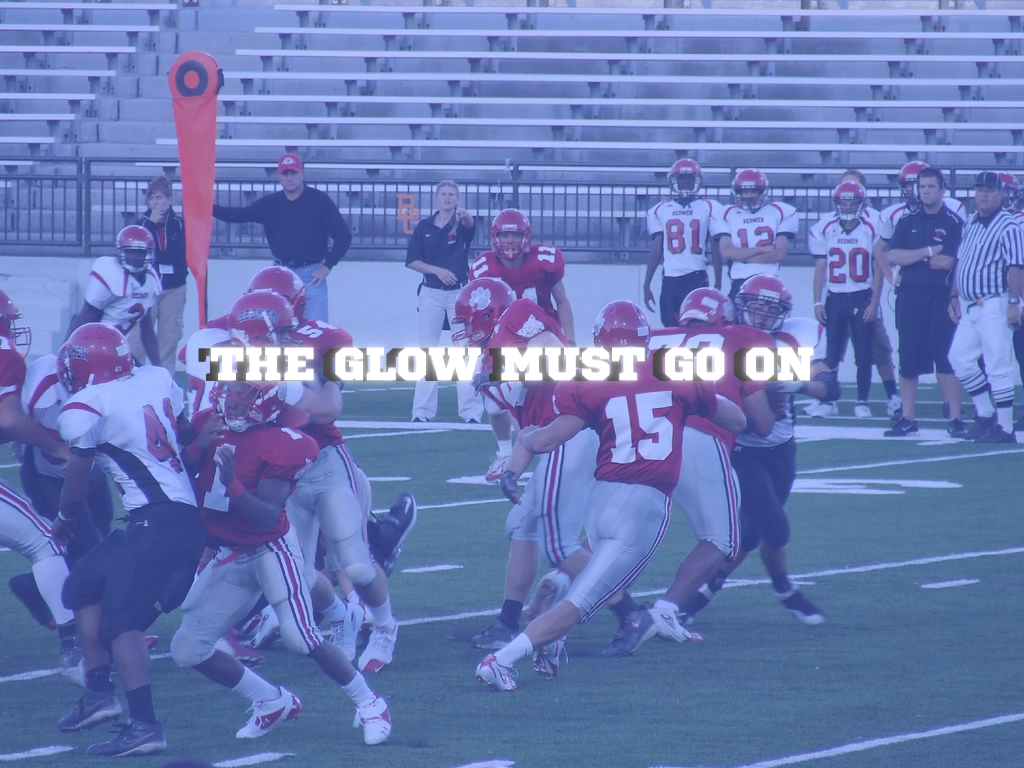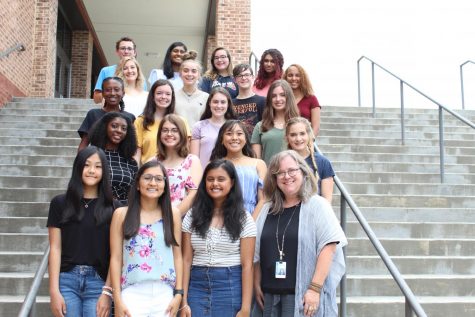Due to the sensitive nature of this topic, the Bird Feed has chosen to let all interviewees remain anonymous in order to protect their privacy and encourage open dialogue.
Sometimes, racism arises in the form of anonymous online insults. Other times, it’s heard spoken casually in the halls of my highschool.
Many say our generation is “too” sensitive. So why are the words I hear echoing through halls so distinctly insensitive? Why do I hear people making so many derogatory comments, so easily?
But it’s a different kind of sting altogether when those words are spoken by someone who actually comes from the culture being criticized.
I was sitting in the back of class recently when I heard the obnoxiously loud conversation of several students in front of me discussing India. Some of the kids were of Indian descent themselves. I could hear them laughing at a kid who had a strong Indian accent. I could hear them making jokes about the apparent “filth” of India, how the languages sounded so funny.
I could literally feel my blood start to boil. I wanted to confront them, but I choked. I knew if I ever had the guts to do so, they’d just say I was being “too sensitive,” and that I couldn’t take a joke.
Maybe I’m the only one who sees something really wrong here. Maybe I’m looking for a reason to be upset.
But then again, maybe I’m not.
I moved to America in eighth grade. I was born and raised in what my parents considered a foreign country, where I lived my whole life before moving to the U.S. My heritage roots me to India, and I feel a strong connection to its culture and traditions.
When I started school in America, I pretended I was an American. A real American, with an American accent and all. I’d even laugh at the jokes they made about India to ensure that nobody would accuse me of not belonging.
I was infuriated by those kids insulting their own culture, but in reality, I’ve been doing the same thing for years.
This incident drove me to speak with multiple peers and supportive faculty members on the topics of race, racial identity, and peer pressure.
My hope was to answer a single question: What force is so powerful that it can motivate us to denounce our own heritage?
Are we Alone in This?
“[I hear racist jokes] in the hallways between classes sometimes,” said Mrs. Spencer, a staff member of Caucasian descent.
“I can shut it down when it happens in a classroom, but in a hallway full of a hundred students, it becomes harder to address,” Spencer said.
Nancy, a Junior at South Forsyth High School, said she hears racialized jokes “very often.”
Despite the pervasiveness of this phenomenon, many people of all ages don’t quite know how to respond.
“It’s like ‘Oh, [that person is] not funny,’ but also you don’t say anything because it’s so normal that you kind of just move past it,” said Junior Nancy.
The question of why these jokes are made at all is too easy to answer.
Senior Joe, who is of Filipino descent, said “I laugh,” in response to racist jokes.
The faculty member I spoke with questioned if students who seek peer attention through this behavior really believe—or even understand—what they’re saying.
“Honestly the racist jokes do make me sad, because I feel like maybe those feelings aren’t genuine,” said Mrs. Spencer. “But that’s how they get laughs and [approval] from their peers.”
Very few consider who they’re throwing under the bus in the teenage quest for acceptance.
“It would probably make me sadder if I felt like people really meant it,” Mrs. Spencer said. “I’m not saying you should be absolved from blame, but I really do think it’s just teenagers trying to connect with one another in a really misguided way.”
‘A Belief of Your Own’
The demographics of our surroundings can be another factor in the propagation of racially motivated so-called jokes.
Senior Joe said,“We’re in an area that’s majority white…I’m not saying all white people, but many white people have the ability to make racist jokes, and so when [non-white people] see these same people who are making these jokes are considered popular, they’re trying to fit in with them.”
“Fitting in” was a theme I heard mentioned over and over in these candid conversations about the racist joke phenomenon. But what compels us to utilize something as awful as racism to fit in?
“Hatred is learned,” said Mrs. Spencer. “It’s passed down [from the previous generation].”
Perhaps this issue could root back to our own communities of origin.
“If you look at [Forsyth] county, [there are a lot of] different communities, and every community brings its own prejudices,” said Junior Nancy, who is of Indian descent herself.
Or maybe it stems from within us. History can repeat itself as easily as we fall asleep.
“You’re [making racist jokes] for so long, eventually this thing that initially was just fitting in turns into a belief of your own,” Senior Joe said.
In-Group/Out-Group
Meanwhile, the faculty member discussed another potential catalyst behind Gen Z’s questionable sources of humor.
“With the ubiquity of social media I think…a lot more weight is placed on appearance now,” said Mrs. Spencer. “Because you’re constantly being photographed, you’re constantly expected to be uploading. Since the advent of social media I have seen people put a lot more stock in appearance, and generally get more harsh when it comes to how they treat people who look differently.”
She was right. I often feel myself critiquing others online and in real life. But simultaneously, I craved a sense of belonging amongst those same people I just judged.
So why is this?
Mrs. Spencer also pointed to the in-group/out-group phenomenon, a psychological theory that states humans treat those with whom they share a group or commonality more favorably than others.
“Our brain evolved to need to be part of a group, because if you think back to hunter-gatherer days, if you were not part of a group, you were dead,” said Mrs. Spencer. “So I think we all have this really strong motivation to want to be included in a clique, essentially because that makes our brains feel safe.”
Our innate human nature seemingly seeps into our words, but what happens when our words are put into a megaphone to the world otherwise known as the internet?
Senior Joe said, “Instagram reels comments and TikTok comments [are] where it’s normalized to make jokes using racial slurs, and these are the comments at the top. So I think it’s easier to make jokes like that when you [perceive that attitude to be] popular.”
The repetitive nature of algorithmic social media only reinforces these negative views.
“When you see extreme view after extreme view [being embraced], it really gets ingrained in you,” Senior Joe said.
Social media content like this may prompt young viewers to question if their racial identity makes them less desirable or acceptable. For many, their battle with racial identity stemmed from this yearning for acceptance.
But is betraying your own culture really the cost of peer approval?
The Cost
While most young people feel some impetus to change themselves for the approval of others, it’s a different matter when the thing you want to change is your entire ethnicity.
“I’m South Indian…but I grew up in America,” said Junior Anne. “As a kid, the food I would eat, things I would say, things I would wear just kind of freaked people out because they didn’t know about [my culture] and weren’t willing to accept people not like them.”
These early experiences with rejection can lead to unhealthy behaviors during important developmental stages.
“I tried to change myself a lot in middle school,” Junior Anne said. “But now I’ve just kind of learned to accept I’m Indian. That’s who I am.”
Meanwhile, Senior Joe said, “I’m a Filipino. My nationality is American. For a while I wanted to be white, but then I wanted to be more East Asian, because you don’t see Filipinos being represented.”
For a long time, I too changed my whole personality based on who I was around. When I’d attend events and meet Indian family-friends, I’d assume my Indian identity. Blending in, I’d praise Indian foods, shows, movies, and songs with my friends.
And then when I’d roam the town of my birthplace with my friends, I’d shed the Indian persona.
And finally, when I came to school in America, I pretended I was an American.
I wore these masks all the time. It happened automatically. In all honesty, I felt like if I were ever to commit to just one identity, I’d never really belong anywhere.
A Nomadic Existence
I’ve since abandoned those masks and disguises. But if I’m honest, I still feel like a nomad, an outsider, no matter where I go. In reality, I’ll never fit in well enough to qualify with anybody.
My masks helped to hide those realities for me. For a short while I could pretend to be something I wasn’t. I could pretend to belong.
So now when I see those people hide behind their masks, acting as though they’re something they’re not — I can see their struggle to accept who they are, where they come from.
But that doesn’t make what they said okay.
Because regardless of how much you may dislike or even hate where your roots ground you, regardless of how much you crave belonging, it’s no excuse to spew hateful, downright racist verbiage.
We all need to rise above the urge to blend in and wear masks. The craving for belonging doesn’t alienate you; it makes you a human being, a social creature.
Your roots provided you with a history and a culture. You have a home. And while the starting point wasn’t something you chose, the rest of the journey is entirely up to you.
If you are brave enough to step outside of the communities and behaviors that make you feel safe, you may discover the same thing I learned from these interviews: across cultures, continents and algorithms, humans all have so much more in common than you could possibly imagine.
“After you’ve met people from lots of different cultures and communities you realize how similar everyone is, and how we all really want the same things,” said Mrs. Spencer. “These stupid little jokes, that’s really what’s dividing us.”




